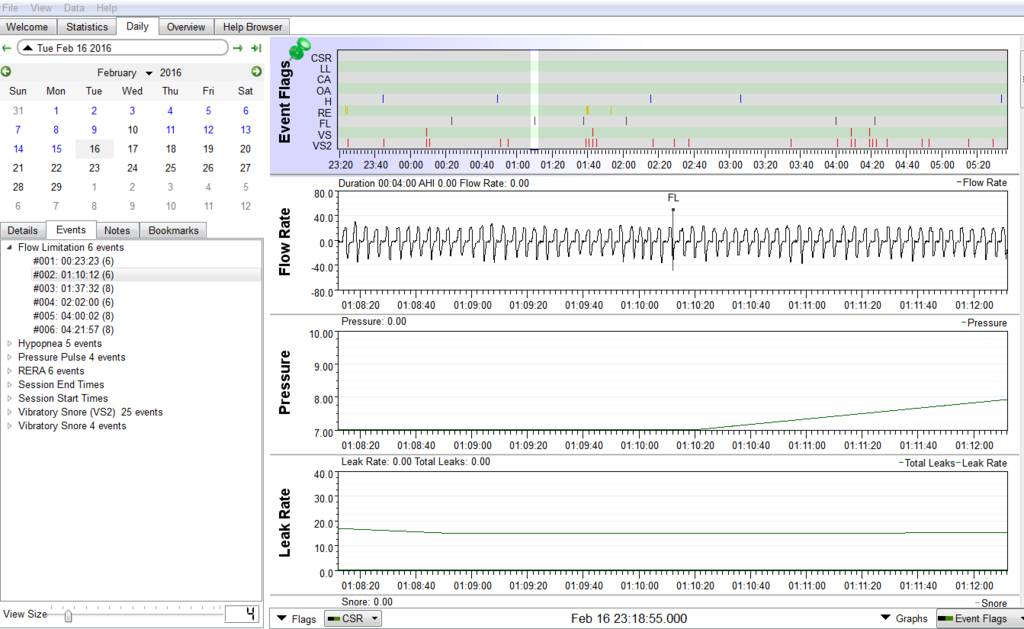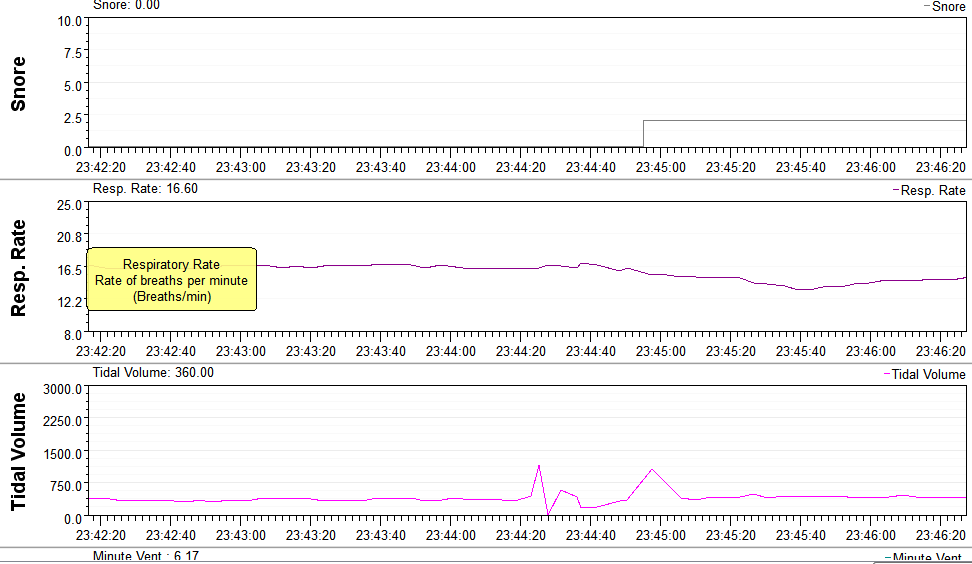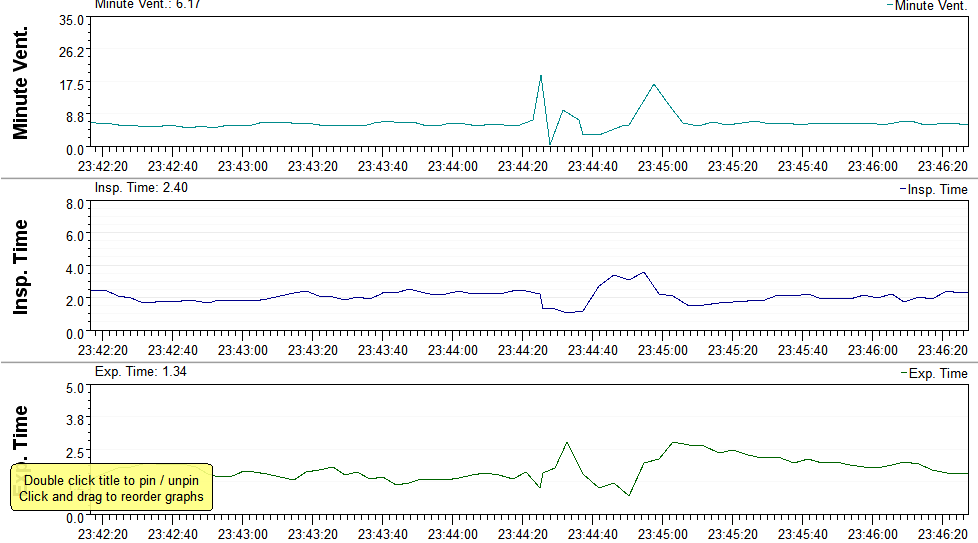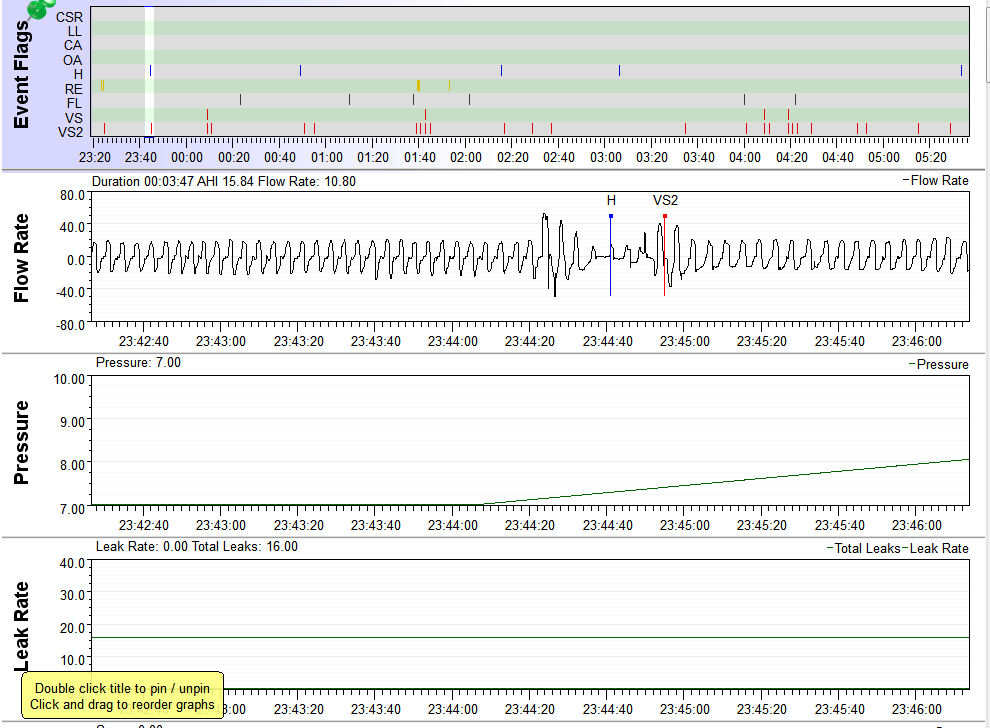Post
by stienman » Wed Feb 17, 2016 8:23 am
I'm very new to this, so don't take anything I say with any authority, I'm just guessing from what little I have heard, and I could be misreading your chart as I have little experience with them.
Interesting bits include:
* You have a low AHI, but your total time in apnea is long - 4 minutes in february 15.
* You don't appear to be having obstructive or central apneas, but hypopnea, which is abnormally slow or shallow breathing.
* On your chart which shows respiration rate you're dipping below 12 breaths a minute, which could be fine, but may be suggestive of a problem.
* On one of the charts it looks like you had 2, 3, or possibly 4 REM states, and two of them ended with hypopnea - in other words, your REM was interrupted by the low or shallow breathing. These interrupted REM states could result in your tired feeling, despite a long sleeping period.
If I were you, I'd consider one or more of the following:
* get a oxygen/pulse logger (such as the CMS50f, which works with sleepyhead) and find out what your oxygen level is overnight. Compare it to the graph during hypopneas and during times of low respiration rate
* check your settings for aflex/cflex and see if modifying those helps (I see you've already jumped back and forth between the two modes and adjusted them, check out the results after you've changed them and see if there are any patterns that suggest an optimal setting)
* zoom in to graphs where the machine detects hypopnea and find out what your respiration rate, inhale/exhale, flow, and other graphs look like. There may be clues in there, or, at least, more information about what the hypopnea is for your case
If your oxygen is falling during these times, then you need to change your therapy, and how to change it should probably be consulted with a doctor. It may be that a bipap or servo machine would be useful, or supplemental oxygen, but these are probably best overseen by a doctor.
Given that you're still tired, I'd suggest focusing less on the total AHI, and looking at individual hypopneas to try and figure out why they're happening, and how to reduce them. I'm not sure, though, other than a servo machine which essentially takes over breathing for you under certain circumstances (such as hypopnea), how these would be resolved. There may be underlying causes, or it may simply be that this is what you're body is doing, and a higher functioning PAP machine is the best solution.
But first I'd look at oxygen, to make sure it's not causing dangerous drops in oxygen, then I'd look at how to resolve the hypopneas, and at this point I'd suggest a sleep expert physician would be your best bet.

























